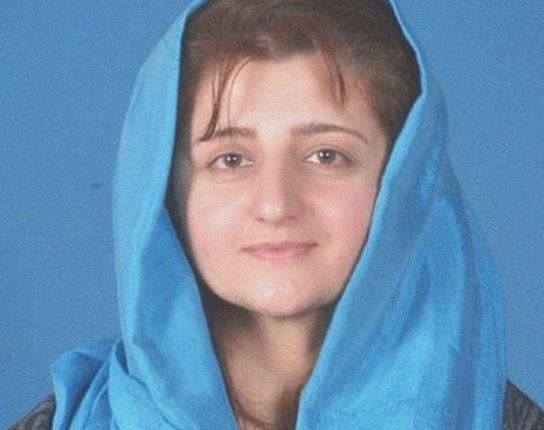Kashmir Solidarity Day: Honoring the Struggles and Sacrifices of Kashmiri warriors.
Qurat ul ain Ali
Every year on February 5, Kashmir Day is observed. On this occasion, Pakistan honors and pays homage to the martyrs who sacrificed their lives in the struggle for Kashmiri independence. The day is dedicated to reinforcing and expressing solidarity with the Kashmiri freedom movement. The ceremony commemorates Pakistan’s defense of Jammu and Kashmir in the aftermath of the partition in 1947–1948, symbolizing a day that unites the entire nation.
The day is marked by public processions, special prayers, and protests against Indian oppression in Kashmir. Since 1990, Pakistan has observed Kashmir Solidarity Day, using it as an opportunity to remind the international community and the United Nations (UN) bodies of their responsibilities. Demonstrations, processions, and protests are held globally by the Pakistani and Kashmiri communities, raising their voices for the rights of innocent Kashmiris, especially those seeking independence.
On Kashmir Solidarity Day, Pakistan holds international conferences with foreign delegates, an Organization of Islamic Countries (OIC) session, and an exclusive session at the National Assembly. These events culminate in a unified resolution sent to the United Nations Security Council (UNSC). The Inter-Services Public Relations (ISPR) pays tribute to martyrs and appreciates the courage of Kashmiris by releasing a song every year. This year, anticipation surrounds ISPR’s contributions to Kashmir Solidarity Day.
Pakistan expressed a favorable stance towards the involvement of the international community to achieve improved outcomes. Solidarity, highlighted in the Millennium Declaration, stands as a fundamental value in 21st-century international relations. It emphasizes that those who suffer or benefit the least should receive assistance from those who benefit the most. In the context of globalization and growing inequality, strengthening international solidarity is deemed indispensable.
Currently, numerous Kashmiri leaders and youngsters are held as political prisoners in Indian prisons, driven by a profound spirit that transformed them into warriors, a perception acknowledged by those in power. While many occupied humans and leaders are characterized as professionals or careerists, these warriors answered a higher calling, enduring an immeasurable price within prison cells. The Indian army incarcerated them to prevent them from revealing the harsh realities of Indian cruelty and forced occupation to their fellow villagers. As the saying goes, “What the eye doesn’t see, the heart doesn’t grieve for.”
On this solidarity day, we extend our support to one of the silent warriors of Kashmir, Dr. Mohammad Qasim Faktoo. We share the concise overview of Dr. Muhammad Qasim with organizations, committees, media personnel, and individuals dedicated to human rights and political prisoners. By doing so, we emphasize not just support for an individual but for a just cause.
On February 5, Dr. Mohammad Qasim Faktoo, the spouse of Dukhtaran-e-Millat chief Asiya Andrabi, marked 31 years behind bars. His arrest took place on February 5, 1993, and he was charged under the Public Safety Act. The Supreme Court, relying on a confessional statement submitted in court, handed down a life sentence.
“Political prisoners describe:
– extreme physical and emotional torture
– distortion of language, truth, meaning and reality
– sham killings
– begin repeatedly taken to the point of death or threatened with death
– being forced to witness abusive acts on others
– being forced to make impossible “choices”
– boundaries smashed i.e. by the use of forced nakedness, shame, embarrassment
– hoaxes, ‘set-ups’, testing and tricks
– being forced to hurt others.
― Laurie Matthew, Who Dares Wins
Dr. Mohammad Qasim Faktoo, an Islamic scholar deeply committed to religious principles and a proponent of Azadi ideology, has spent the last two decades behind bars. In 2012, the J&K High Court dismissed Dr. Qasim Faktoo’s petition, filed through the Muslim League, seeking release. The court asserted that a life sentence implies incarceration until death.
The reason of his arrest in February 1993 was for expressing political views deemed unacceptable by the establishment, experienced temporary freedom on bail from the TADA court in Jammu in March 1999. However, upon his return from the UK after attending a Kashmir conference in February 2000, he was re-arrested in the same case. Approaching his 20th year of imprisonment in June 2012, Dr. Qasim faced numerous health challenges. He lost over half of his eyesight (-4.75 D) and has been recommended Lasik surgery. Additionally, an orthopedic surgeon suggested surgery for his L4-L5 disc. Dr. Qasim consistently takes medication for erosive duodenitis, chronic gastritis, and intestinal issues. Despite these health concerns, the jail authorities have shown little concern, leading to a gradual deterioration of his health.
The question arises, how can we contribute to the support of the Kashmir cause. To Facilitate such support has become more accessible than ever. The global audience is readily available and eager to heed your perspective. Your voice holds significance, particularly on Kashmir Solidarity Day, regardless of your residence in Pakistan, the UK, the USA, or any other part of the world. The simple action required is to employ the designated hashtag for #KashmirSolidarityDay2024, namely #kashmirsolidarityday2024, across all your social media platforms, with emphasis on Twitter and Facebook. It is imperative to acknowledge that every voice is of importance on Kashmir Solidarity Day 2024.

